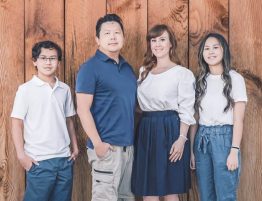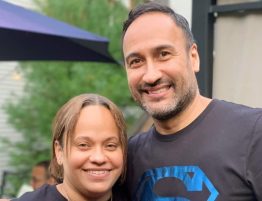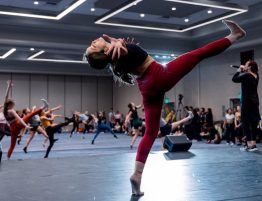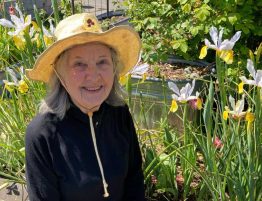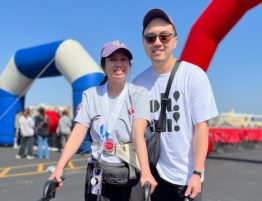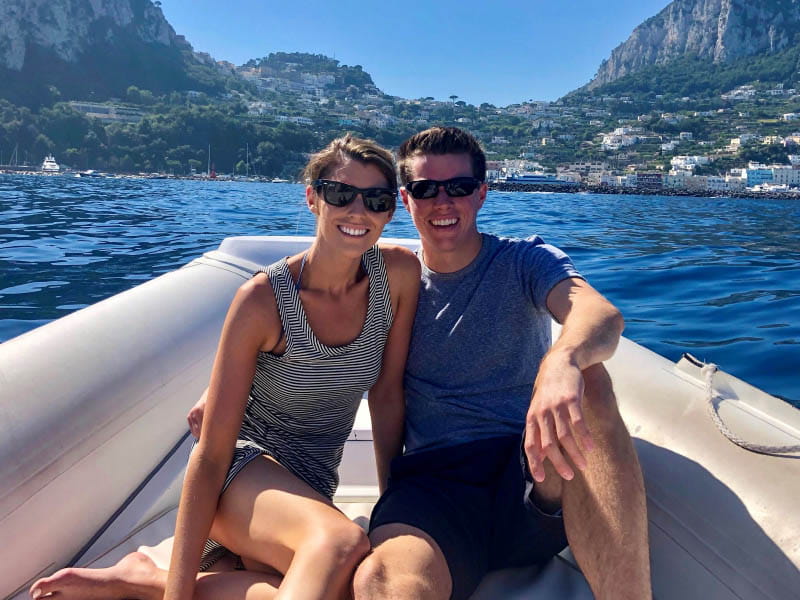
A week after her honeymoon, Caroline Goggin was telling a story to her husband, Travis Eldridge, as they cleaned up after breakfast in their home in Massachusetts.
Goggin, then a reporter and anchor for WPRI-TV in Providence, Rhode Island, was placing a pan in the dishwasher when she felt a wave of dizziness. The words weren’t coming out of her mouth clearly. Her left arm felt numb. Suddenly, she couldn’t see.
Eldridge thought she was joking. Then he saw the whole left side of her face was drooping.
He carried her to bed and brought her a glass of water. When she tried drinking, it dribbled out. He helped her stand and she collapsed. He then called 911.
Eldridge went to let the emergency responders into the apartment building. By the time they returned, Goggin was standing and speaking clearly. Yet her face still drooped. She was taken to the hospital for testing.
As Eldridge called relatives from a busy lobby, he overheard a doctor ask a nurse to find a room for a 27-year-old woman who was having a stroke.
Goggin was transferred to a neurology ICU in Boston for more testing and monitoring. However, when she was released four days later, the best doctors could say was that they thought she may have a clotting condition.
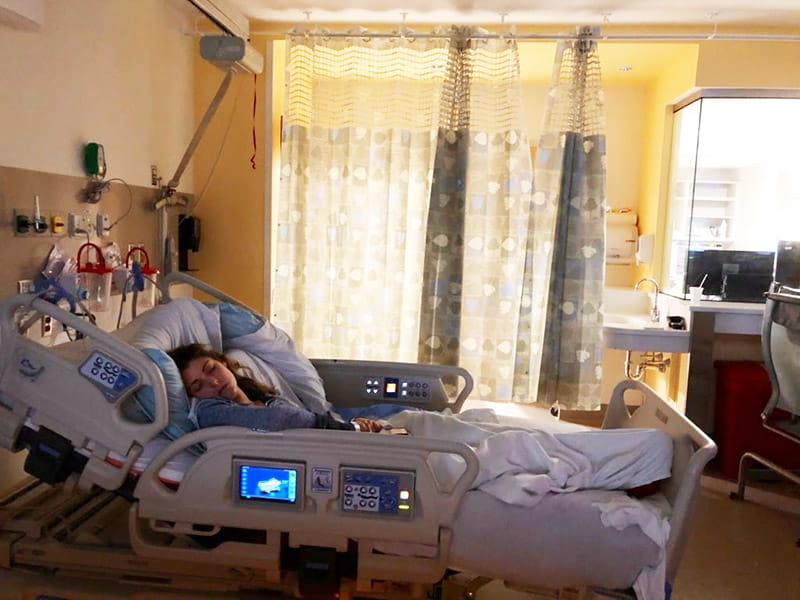
“I was so scared because we didn’t know what had caused it,” Goggin said.
Trial and error with medicines was supposed to help solve the riddle. It didn’t. The new theory is that a combination of medications, including birth control, may have caused a clot.
A stroke of unknown origin is called a cryptogenic stroke. The challenge of not knowing can be tough mentally. Physically, Goggin progressed in some areas better than others. While she regained her strength, she found that fatigue led to a slight face droop.
“I would try to pretend like my life was normal, but then a migraine would set in after a few hours and I would realize I wasn’t back to normal,” she said.
Shortly after her release from the hospital, Goggin was watching her wedding video when her right hand went numb. Having been warned that she was at increased risk for another event, she instantly feared that it was another stroke. It wasn’t; she’d merely been cold and her hand was in a funny position.
“That fear of it happening again does a number on your mental health,” she said.
Eldridge also is acutely aware that she could have another stroke.
“I still look at her face to see if it’s drooping,” he said. “There will be times when she’ll talk out of one side of her mouth and for a split second, I panic.”
Goggin shared her story during a newscast at her current station, WHDH-TV 7News in Boston. She also shared her story during the Southern New England Go Red for Women Luncheon in February 2020.
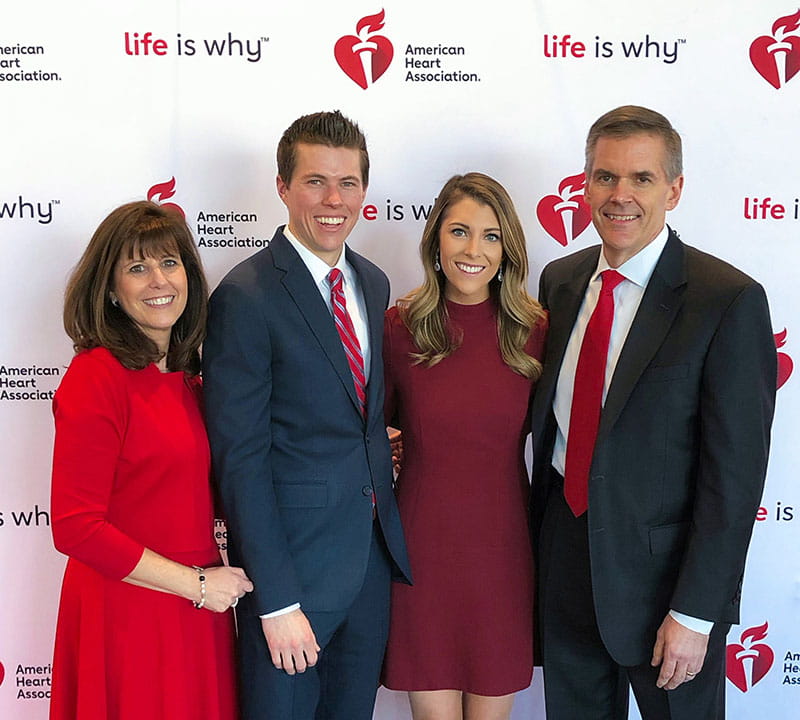
Now 29 and living in Newton, Massachusetts, Goggin said speaking out has helped because it led to her connecting with other young stroke survivors. Support and stories from peers who’ve endured the same experience also has inspired her to raise awareness about the stroke risks for young people.
“I hope that the more young survivors share their stories, the easier it will be for others,” she said. “I want people to know that there are other young survivors out there and there are people out there to help and support you along the process.”
Goggin’s experience spurred her to redouble her efforts to stay healthy. She hit her goal of running a half marathon within a year of her stroke. Now she’s training to run a marathon.
In April, Goggin and Eldridge will run the Boston Marathon and raise money for the American Stroke Association as part of Tedy’s Team, which is named for former New England Patriots linebacker and three-time Super Bowl winner Tedy Bruschi, who survived a stroke at age 31.
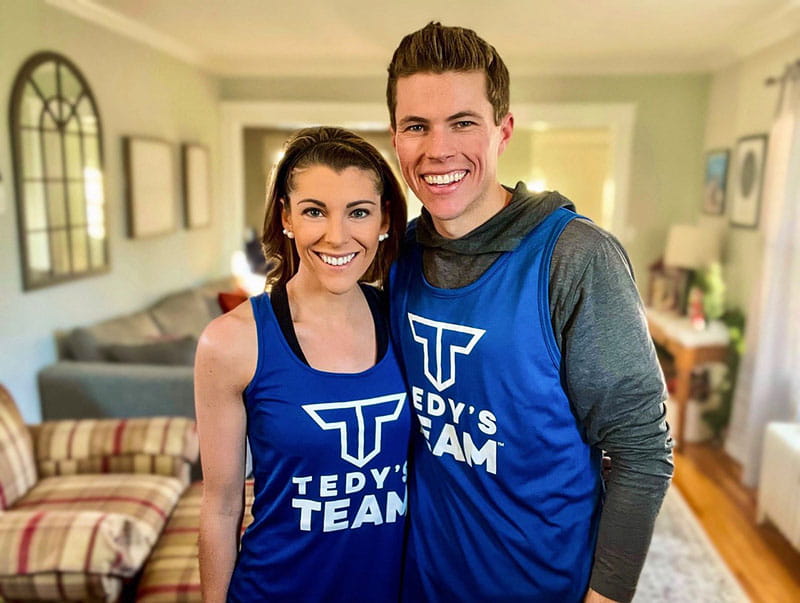
Stories From the Heart chronicles the inspiring journeys of heart disease and stroke survivors, caregivers and advocates.
If you have questions or comments about this story, please email editor@heart.org.


